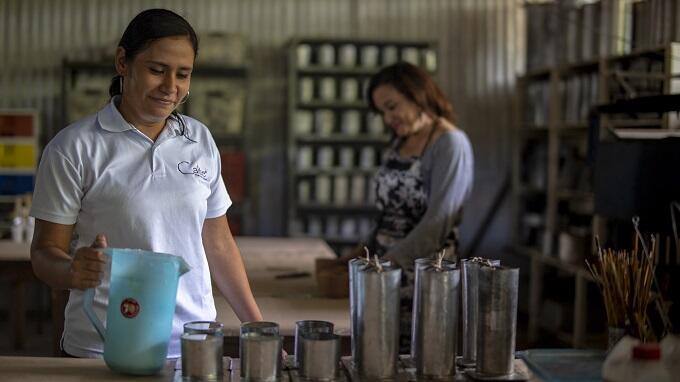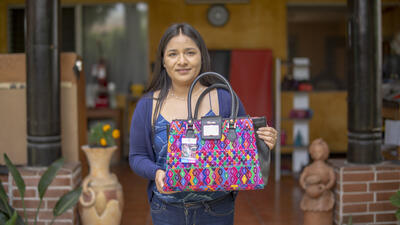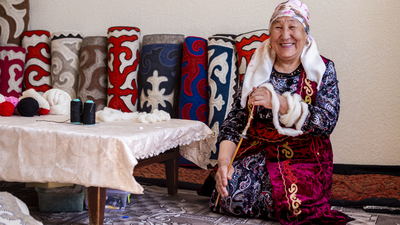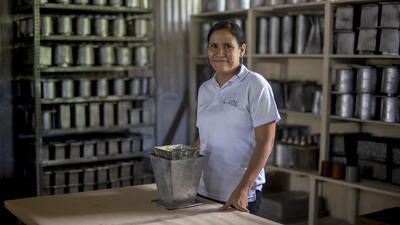
ITC launches leadership programme for e-commerce businesses in Central America
The e-commerce leadership programme stands to facilitate mentorship, knowledge-sharing and collaboration amongst project beneficiaries in Central America.
Following more than two years of training for e-commerce businesses in Central America, ITC ecomConnect - the e-commerce initiative at the International Trade Centre - launched a leadership programme to provide advanced companies the opportunity to mentor fellow beneficiaries.
The programme allows businesses who gained extensive knowledge during the one-on-one e-commerce coaching to leverage their experience and scale the e-lab methodology applied during the project.
‘E-labs’ were organised by the ITC to provide the most seasoned businesses with specific support, covering testing, learning, and measuring. By testing different online channels, learning digital marketing techniques, and measuring performance, participants developed e-commerce strategies and insights that they could later pass on to less advanced beneficiaries.
Fostering knowledge-sharing and inter-regional collaboration
The programme saw a total of 36 Central American business owners. To foster inter-regional collaboration and camaraderie, they were grouped into 18 teams consisting of entrepreneurs from various parts of Central America, including Costa Rica, El Salvador, Guatemala, Honduras, Nicaragua, and Panamá.
“I find it very enriching having students in other countries of the region,” says Anna Sophia, Founder of Achiote, a participating company in Guatemala. “Sometimes I feel that communication stays local. If we only talk to Guatemalan companies, we are always in the same ‘tray’. It is important to get out of the bubble and connect with other entrepreneurs, like my mentee in El Salvador.”
Each team chose the online sales channel they wanted to learn more about – including Etsy, eBay, or hosting their own e-commerce website. Following an initial meet-up, participants underwent intensive training, learning essential e-commerce skills such as developing an ‘E-commerce Canvas’, opening corresponding online sales channels, content creation work plans, and creating a digital marketing strategy.
“The leadership programme seems very complete”, says Lisbeth González, Founder of Liz Sirena in Panama. “It gives us, the mentees, the possibility to apply everything we have learned with the direct support of a tutor who has already gone through the same process. I would love to share what I have learned and help other entrepreneurs grow through e-commerce.”
Even if the local trainers of the project did not directly participate in the Leadership Programme, they recognize the good results it produced. “There is definitely a lot of value in motivating businesswomen to support each other”, says Luis Cedeno, a local e-commerce trainer at the Ministry for Commerce and Industry in Panama. “Through teaching, you can also learn. The programme generates a ripple effect because the student also feels a natural inclination to help other businesswomen.”
Anna Sophia echoes this sentiment. “I am very excited to be able to pass on experience and knowledge to a motivated colleague,” she says. “It would be great to replicate the E-commerce Leadership Programme at a wider scale, including more mentees. I really like to see how my student responds to the advice I give her.”
At the end of Spring 2021, participants from the E-Commerce Leadership Programme will have the opportunity to present their work at a pitching competition. With this, both mentors and mentees will benefit from training on pitching a business online.
About the project
The E-Commerce Leadership Programme is part of the "Linking Central American Women Business Enterprises (WBEs) with the Global Gifts and Home Decoration Market" initiative. The project is funded by the European Union (EU) and implemented by the International Trade Centre (ITC) in collaboration with the Secretariat for Central American Economic Integration (SIECA) and national implementing partners in Costa Rica, El Salvador, Guatemala, Honduras, Nicaragua and Panama.

















